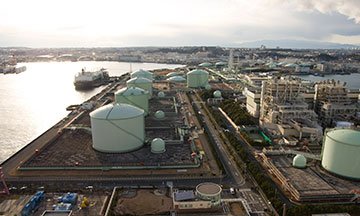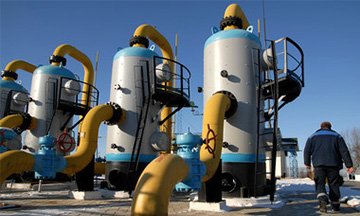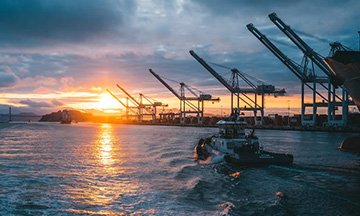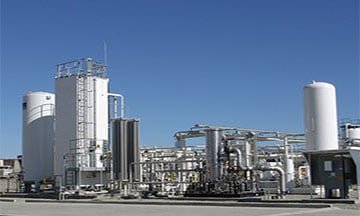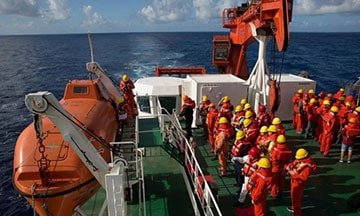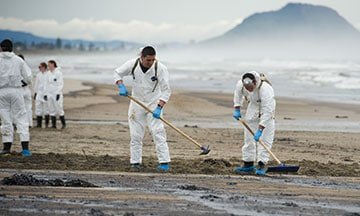LNG Terminal and Terminal Process Operations
| Date | Format | Duration | Fees | |
|---|---|---|---|---|
| 29 Apr - 03 May, 2024 | Live Online | 5 Days | $2250 | Register |
| 24 Jun - 26 Jun, 2024 | Live Online | 3 Days | $1750 | Register |
| 29 Jul - 02 Aug, 2024 | Live Online | 5 Days | $2250 | Register |
| 12 Aug - 23 Aug, 2024 | Live Online | 10 Days | $4495 | Register |
| 02 Sep - 13 Sep, 2024 | Live Online | 10 Days | $4495 | Register |
| 28 Oct - 01 Nov, 2024 | Live Online | 5 Days | $2250 | Register |
| 18 Nov - 22 Nov, 2024 | Live Online | 5 Days | $2250 | Register |
| 16 Dec - 24 Dec, 2024 | Live Online | 7 Days | $3147 | Register |
| Date | Venue | Duration | Fees | |
|---|---|---|---|---|
| 29 Apr - 03 May, 2024 | Dubai | 5 Days | $4750 | Register |
| 13 May - 17 May, 2024 | Dubai | 5 Days | $4750 | Register |
| 20 May - 24 May, 2024 | Amsterdam | 5 Days | $5695 | Register |
| 12 Jun - 14 Jun, 2024 | Dubai | 3 Days | $3950 | Register |
| 08 Jul - 12 Jul, 2024 | Dubai | 5 Days | $4750 | Register |
| 15 Jul - 19 Jul, 2024 | Kigali | 5 Days | $4950 | Register |
| 05 Aug - 09 Aug, 2024 | Dubai | 5 Days | $4750 | Register |
| 26 Aug - 06 Sep, 2024 | Mauritius | 10 Days | $9375 | Register |
| 16 Sep - 27 Sep, 2024 | Houston | 10 Days | $9850 | Register |
| 30 Sep - 04 Oct, 2024 | Dubai | 5 Days | $4750 | Register |
| 14 Oct - 18 Oct, 2024 | Houston | 5 Days | $5695 | Register |
| 21 Oct - 25 Oct, 2024 | Dubai | 5 Days | $4750 | Register |
| 04 Nov - 08 Nov, 2024 | New York | 5 Days | $5695 | Register |
| 18 Nov - 22 Nov, 2024 | Dubai | 5 Days | $4750 | Register |
| 02 Dec - 13 Dec, 2024 | Dubai | 10 Days | $8775 | Register |
Course Overview
A liquefied natural gas (LNG) terminal is a structure used for the storage of natural gas. A terminal may comprise ships, building structures or tanks of specific types. Pipelines and port infrastructure also form a significant part of LNG terminals.
LNG is nothing but natural gas that is liquefied to be transported in a safer form, mainly by sea. Thus, LNG terminals are ports built for specific purposes of import or export of natural gas. LNG terminals can broadly be classified into two main types, i.e. liquefaction terminals (export) and regasification or receiving terminals (imports).
Terminal operations are critical to the success and development of trade and commerce for a nation, and expertise in terminal operations becomes equally important. Terminal operations encompass all activities, measures and guidelines that should be known when working at terminals.
This Zoe training course will empower you with a complete understanding of LNG terminals and terminal operations to be able to undertake and successfully fulfil higher roles and responsibilities related to LNG terminal operations for your organisation.
This LNG training course will also increase your prospects and potential to acquire greater opportunities for growth and progression within and outside your organisation. Thus, this course is extremely important if you intend to build and progress your career in LNG terminal operations and management.
Course Objectives
The primary objective of this training course is to empower professionals with—
- detailed knowledge and understanding of LNG terminals and terminal operations
- the required knowledge and confidence to mentor and guide other professionals to effectively carry out various operations at LNG terminals
- the foresight and attention to detail to review and audit current processes and systems and enhance them to match desired levels of safety and operational excellence
- the knowledge and skill to introduce advanced concepts and techniques in operations to achieve operational excellence, in turn contributing to growth and development of the organisation
- the understanding and information to contribute to increased safety in operations and better risk identification and mitigation
- the confidence and capabilities to assume roles and responsibilities of higher criticality and successfully fulfil these as per expectations, thereby demonstrating talent and potential and inviting further opportunities for growth and progression
- the skillset and understanding to ensure that all terminal operations and procedures abide by international standards of safety and operations
- the potential to define newer ways and devise newer strategies to conduct terminal operations with increased efficiency, preventing wastage and contributing to organisational growth
Training Methodology
All courses at Zoe Talent Solutions can be customised to suit the audience’s professional experience. It is for this reason that each course is thoroughly reviewed before the commencement of each session, and changes are made if necessary. The lectures are delivered by experienced professionals from the relevant domain, using audio-visual presentations for reference.
Trainee participation in the program is ensured through group assignments, projects, activities, discussions, case studies and role-plays. Experiential learning also forms a major part of the approach to training.
This unique and effective training approach was developed by Zoe Talent Solutions and is used for all its training courses. It is called the Do–Review–Learn–Apply Model.
Organisational Benefits
With professionals undertaking this training course, their organisations will derive the following benefits:
- Trained and experienced professionals overseeing LNG terminal operations
- Greater efficiency and quality in operations because of regular audits by the trained and experienced professionals
- Regular and free training of existing and new employees on best practices when partaking in terminal operation execution and/or management
- Effective risk identification and management through thorough research and forecasting
- Organisational development because of increased operational efficiency, controlled risks and reduced costs
- Adherence to required standards of terminal operations, thereby helping the organisation stay relevant in the particular industry
- Application of advanced techniques and concepts to achieve operational excellence and save costs
- Greater investments because of increased credibility and better organisational prospects
Personal Benefits
Professionals enrolling for this training course will derive the following benefits:
- Complete knowledge and understanding of LNG terminals and LNG terminal operations
- Greater confidence and information to train other professionals on best practices for effective terminal operations
- Increased knowledge and understanding to review and regularly audit existing systems and processes and make enhancements to increase operational efficiency
- Enhanced foresight and perspective to predict risks and set systems and processes in place to address these, so as to prevent major business loss
- Greater ability and confidence to successfully assume higher roles and responsibilities within your organisation, thus ensuring steady and satisfactory career growth and progression
- Better understanding of required standards and benchmarks and ensuring that one’s organisation adheres to these standards
- Greater ability and confidence as well as skill to contribute to organisational growth and development through various initiatives, enhancements and innovations
- Complete skillset and capabilities to undertake opportunities for higher roles and responsibilities outside one’s current organisation, including those involving supervision of overall terminal operations
Who Should Attend?
- Engineers and other workers involved at all operations at LNG terminals
- Managers and supervisors overseeing end-to-end operations at LNG terminals
- Members comprising the senior or top management of an organisation, who are involved in critical, strategic decision making for the organisation
- Internal and external auditors responsible for ensuring adherence to and compliance with expected standards and benchmarks of operation
- Vendors and suppliers involved at some stage of LNG terminal operations
- Legal and financial advisors protecting the interests of the organisation in crisis situations
- Any other professional interested in knowing more about LNG terminals and terminal operations
Course Outline
The course covers the following areas important to understand LNG terminal and terminal operations:
Module 1 – Overview of LNG Terminals
- Definition and description
- Types
- Liquefaction terminals (export)
- Regasification terminals (import)
- Broad terminal operations
Module 2 – Key Components of the LNG Chain
- Gas field
- Liquefaction plant
- LNG carriers
- Receiving and regasification terminals
- Storage
Module 3 – Functions of Conventional LNG Terminals
- Berthing of LNG tankers/unloading or reloading of cargo
- Storage of LNG in cryogenic tanks (-160°C)
- Regasification of LNG
- Send-out of gas into the transmission grid
Module 4 – Major Equipment Components of LNG Import and Regasification Terminals
- Unloading arms
- Cryogenic pipelines
- Storage tank(s)
- Low-pressure pumps
- Boil-Off Gas (BOG) compressors and re-condensers
- High pressure (HP) pumps
- Vaporisers
Module 5 – Types of LNG Tanks
- Single containment tanks
- Double containment tanks
- Full containment tanks
- Membrane tanks
- In-ground tanks
Module 6 – LNG Cargo Loading – Operation Procedures and Precautions
- Drying of cargo tanks
- Drying of hold spaces
- Inerting of cargo tanks
- Inerting of annular space (moss-type vessels)
- Inerting inter-barriers spaces and insulation spaces (membrane-type vessels)
- Gassing up
Module 7 – Importance of Proper Maintenance of LNG Terminals
- Safety
- Productivity and output
- Compliance with regulations
Module 8 – Safety Hazards at LNG Terminals and their Management
- Pool fires
- Flammable vapour clouds
- Terrorism hazards
- Others
